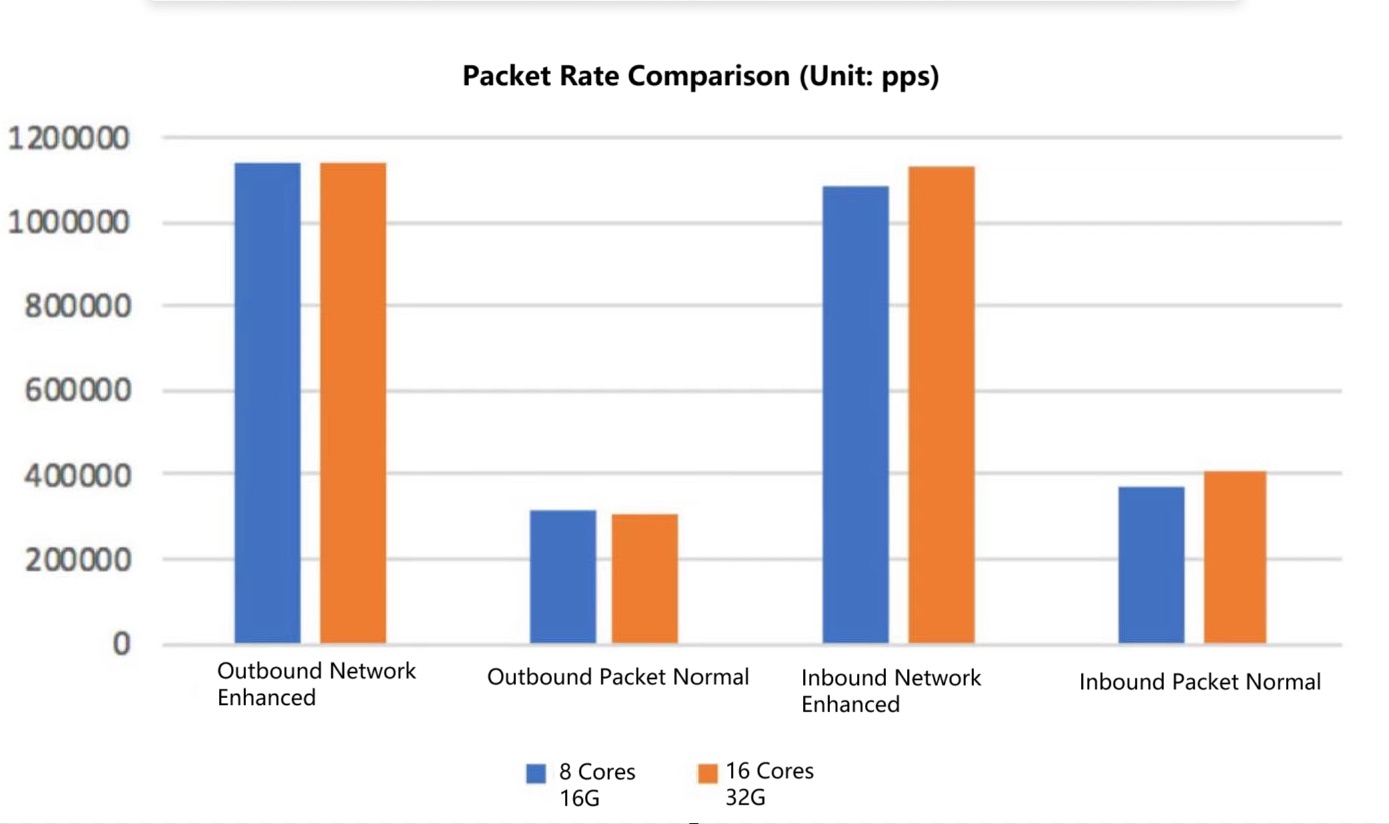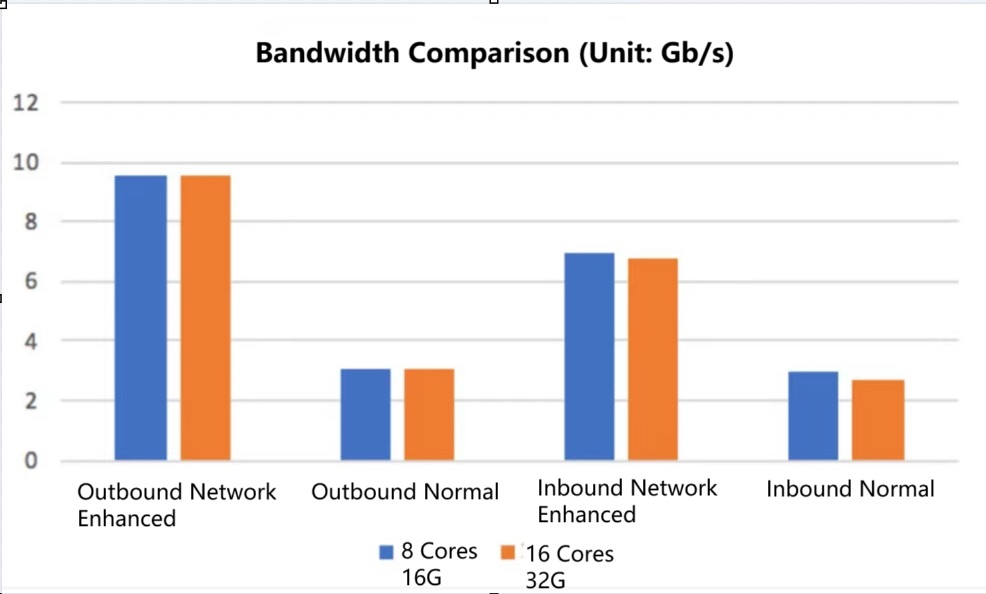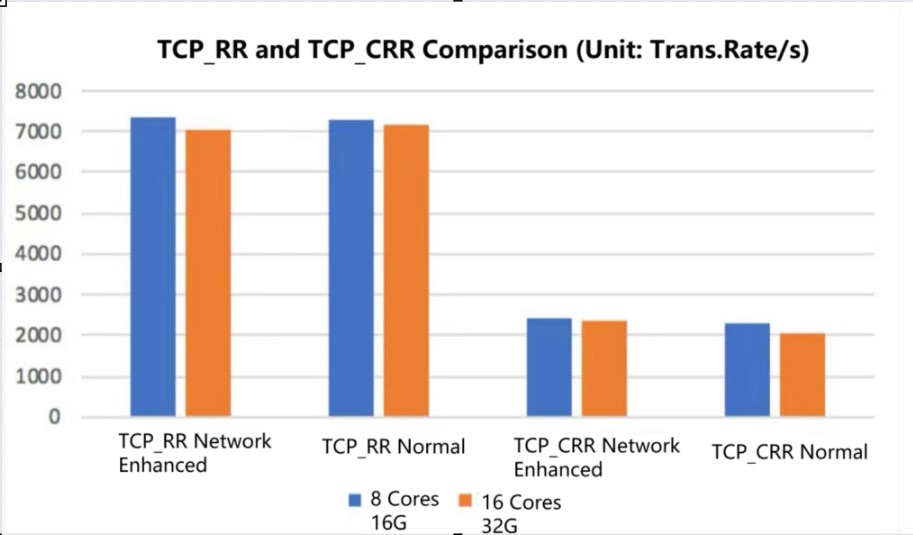Network Enhancement Performance Data
Note: This document only provides benchmark performance tests, which measure the maximum performance values achieved via the UDP protocol with small/large packets. The actual packet volume in specific business scenarios is affected by multiple factors such as upper-layer applications and communication protocols. Please refer to the results of real-world business load testing.
Network Performance Test Indicators
Packet Volume (common units: pps): The number of network packets processed per second. This is the core metric improved by network enhancement features.
Bandwidth (common units: mb/s): Network bandwidth refers to the maximum amount of bit data that can be transmitted within a fixed time (1 second).
TCP_RR (common unit: times/second): Tests the response efficiency of multiple TCP requests and responses in the same TCP connection. This scenario is commonly found in database applications.
TCP_CRR (common unit: times/second): Tests the response efficiency of requests and responses across multiple TCP connections, where each TCP request/response establishes a new TCP connection. The most typical application is HTTP web access requests, where each request/response occurs in a separate TCP connection.
Test Data
Test Environment
Test machine:
Image: CentOS 7.2 64-bit
Specifications: 1) 8-core CPU 16G memory 2) 16-core CPU 32G memory
Auxiliary machine:
Image: CentOS 7.2 64-bit
Specifications: 8-core CPU 16G memory * 8 units
Test 1. Packet Rate test
Using UDP_STREAM, small packet (1byte) test.

Conclusion
- Network enhancement can significantly increase Packet Rate. Under the UDP test, the peak packet processing ability can reach over 1 million pps, which is 3 times that of the case without network enhancement.
- The packet volume capacity of UCloud Global is irrelevant to the size of the specification.
Test 2. Bandwidth test
Using UDP_STREAM, large packet (1400bytes) test.

Conclusion:Network enhancement can significantly increase bandwidth, but in the outbound test, it has reached the maximum bandwidth bottleneck (10G) of the internal network, so it can’t increase further.
Test 3. TCP_RR and TCP_CRR test

Since the round-trip path remains unchanged, a single link can only utilize one core and one channel. Therefore, enabling network enhancement does not make a significant difference, and thus cannot significantly improve TCP_RR and TCP_CRR.